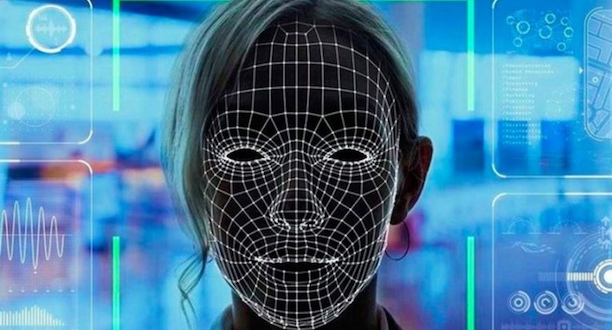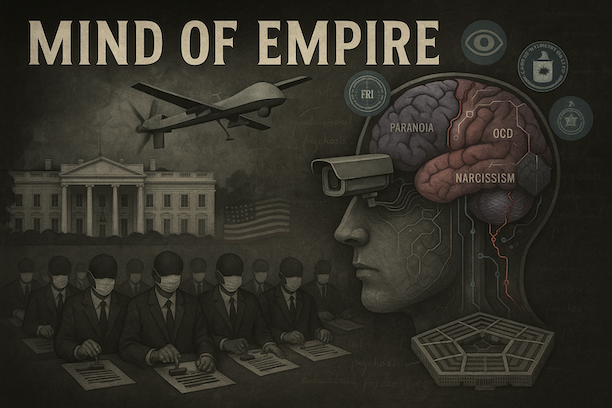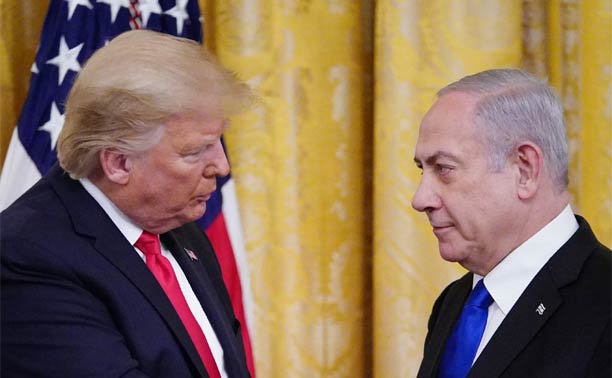Pages: << 1 ... 7 8 9 10 11 12 13 14 15 16 17 ... 1278 >>
The Triad of Control: AI, Biotech, and the Billionaires Behind the Curtain
Chris Spencer
They promised progress. What we got was a digital leash, many dangerous genetic gambles, and a ruling class without a conscience.
THE TRIAD OF CONTROL
Beneath the sheen of innovation and the rhetoric of progress, a deeper architecture of influence is emerging—quietly, systemically, and without democratic consent. It is built on three converging pillars: artificial intelligence, biotechnological power, and a global elite increasingly unmoored from accountability.
What binds these forces is not conspiracy in the cartoonish sense, but convergence—a mutual reinforcement of systems that limit transparency, consolidate decision-making, and reduce human agency to a variable in a larger, opaque equation. AI no longer simply processes data; it determines visibility, enforces digital orthodoxy, and obscures its own logic behind proprietary firewalls. Biotechnology, armed with unprecedented tools for genomic manipulation, is evolving faster than the ethical frameworks meant to constrain it. And threading through both is a transnational class of policymakers, financiers, and technocrats—unelected yet influential, philanthropic yet profit-motivated, visible yet untouchable.
The Psychopathology of Empire: Diagnosing the Control Disorders of America's Ruling Class (Satire)
By Dr. Althea Mentes
A Diagnostic Guide for the Late-Stage Empire (Satire)
The Empire's Mirror-When Power Becomes a Clinical Condition
By the dusk of the American republic's moral standing, its leadership's pathology no longer attempts to masquerade itself as statesmanship. It is now a clinical syndrome that manifests in the obsessive-compulsive need to dominate, the narcissistic disdain for dissent, and the paranoid surveillance of friends and foes alike. The ruling elites-presidents, Pentagon technocrats, and intelligence operatives have a collective psychology more worthy of a diagnostic manual than a democratic polity.
Consider the recent actions of Defense Secretary Pete Hegseth, who has placed unprecedented restrictions on media access within the Pentagon. Journalists are now confined to secured areas and must request escorted tours to venture elsewhere, a move justified under the guise of protecting sensitive information. This expresses a fundamental authoritarian urge, an outcropping of what might be labeled Institutional Obsessive-Compulsive Disorder, in which the imperative to govern information flow trumps democratic standards.
Fixing The Violence As Best As One Can
By Sally Dugman

Ahmed, a Rohingya refugee man cries as he holds his 40-day-old son, who died as a boat capsized in the shore of Shah Porir Dwip while crossing ...
One of my friends has lived his whole life in Bangladesh. He was in the middle of having a shock to his soul or his sensibilities (if one doesn't believe in a soul) due to having been invited to write an assessment for "ROHINGYA: Bangladesh Mission Report."
Yes, it is hard to bear witness. It is hard to endure suffering and loss on behalf of others. One has to brace oneself and toughly steel up so as to not disassemble at having to bear witness at the extreme pain experienced by others. So he pulled himself forward, and was trying to stay whole and focused on his task while at Cox's Bazaar, southeast Bangladesh, near the border with Myanmar.
Part of the way that he kept himself intact was to simply focus on interviews of people and report writing. He tried to keep himself at bay from an overwhelming emotional response to the deep and abidingly relentless pain of these others, the refugees, surrounding him.
The MAGA Revolution Is Being Rolled Back by the Ruling Establishment
Paul Craig Roberts

American judges appointed by Democrats have stopped the Trump administration from deporting illegal entrants into the US
The American Farm Bureau Federation says it will not stop its profit-maximizing ways for the sake of the health of the American people.
Big Pharma says it will not stop vaccinating children to death and illness. Or our pet animals.
Robert F. Kennedy, Jr., says he is leaving a root cause of ill health alone because “There’s a million farmers who rely on glyphosate, 100 percent of corn in this country relies on glyphosate, and we are not going to do anything to jeopardize that business model.”
Civilization and Its Hypnotic Inversion: The Rise and Fall of Human Progress Re: Gaza
Ned Lud
Foreword: A Mirror Without Distortion
We are not living through a war. We are living through a ritual sacrifice of children. One where civilization itself-its memory, its institutions, its ethical spine-is being sacrificed on the altar of technological power and theological delusion. The razing of Gaza is not a tactical campaign but a civilizational indictment: a mirror without distortion, in which the world stares, hypnotized, at its own inversion.
Think of Gaza as a Hormel or Armour slaughterhouse, with cattle prods and cruel devices to dispatch the prey, only substitute little children being pushed through the chutes.
This is not a religious critique, nor a racial tirade. It is a forensic dissection of a global psychosis, wherein the very concepts that once defined human progress-science, ethics, reason, philosophy-have been turned inside out and redeployed as instruments of annihilation. Lavender AI does not merely kill; it categorizes souls by algorithm, delegitimizes innocence by code, and automates genocide with the sterile detachment of a Silicon Messiah.
Mapping Militarism 2025
By David Swanson, World BEYOND War

World BEYOND War has just released its 2025 edition of Mapping Militarism, which uses 24 interactive maps to highlight the state of war and peace on our planet. Each map allows the viewer to spin the globe, zoom in and out, scroll the timeline back through the years, or switch from map view to list view. Try it.
Unbelievable—The Utterly Unacceptable And Immoral Behavior of Netanyahu And Trump!
By Sally Dugman
I’m thoroughly shocked and appalled. I can barely believe my eyes and ears that Bibi Netanyahu, finally, “let the cat out of the bag”, and honestly fessed up about the truth that all along he and some of his cohorts planned a genocide for the Palestinians to rid the land (rightfully belonging to them and passed down generation after generation of ancestors of them) so that thieving Bibi and Israeli supporters once and for all can steal Gaza and more for Israeli ownership.
Big Tobacco on Wheels: How the SUV Industry Became the New Phillip Morris
Cathy Smith
"I’ve pronounced six kids this year with the same injury: crushed thoraxes from SUV grilles. Their height lines up perfectly with the bumper."
—Dr. Elena Martinez, Trauma Surgeon, UCLA Medical Center
There was a time when tobacco companies were the villains of American capitalism — peddling poison, silencing whistleblowers, and marketing carcinogens to children. But the Marlboro Men are dead. Their legacy, however, is not. It has been inherited, rebranded, and outfitted with leather interiors and a seven-year payment plan. Welcome to the SUV-industrial complex — the new Phillip Morris of our time.
If you think that sounds extreme, you haven’t been paying attention. SUVs kill more people than cigarettes did in their heyday — just not all at once. They murder slowly, publicly, and with plausible deniability. Behind each polished ad campaign, behind every rugged “Built for the Wild” slogan, lies a death toll, a gasping planet, and an army of Madison Avenue psychologists who know exactly how to sell you the illusion of power.
The Digital Dystopia of Death: How Israel's Talpiot Program Automates Genocidal Logic
Robert David
Israeli Defense Forces Lavender is 21st Century IBM's Hollerith Nazi Holocaust Punch Card Equipment
In the shadow of an increasingly-serious technological singularity, the once-evasive specter of genocide has been honed and maximized by machines that are no longer dependent on human impulse to commit genocide. Those were the days when death was engaged with by the fists of soldiers to the drum of anger or hatred. Extermination is outsourced to algorithms now. The Talpiot Program, Israel's best military tech talent pipeline, is the fulcrum of this lethal shift-turning the science of war into an assembly line, algorithmic process in carrying out death. It's no tale of battlefields littered with bodies. It's the calculating calm of a system that deploys death on purpose. It doesn't kill by accident, nor in reprisal-it kills as a matter of efficiency.
"The world is a dangerous place to live; not because of the people who are evil, but because of the people who don't do anything about it." Albert Einstein.
Domestic Violence Is Part of What War Creates
By David Swanson, World BEYOND War
As Stacy Bannerman has been telling us for decades, the U.S. military has a domestic violence problem. So do some other — and I strongly suspect all — militaries.
The Pentagon has long known about the significantly increased risk of domestic violence by combat-exposed troops, yet has failed to properly inform military members or their families, and has violated laws mandating reporting on the problem.
This lack of transparency and breach of legal responsibilities has left thousands of spouses, children, caregivers, parents, partners, and veterans dead, injured, suffering emotional distress and damages, and often struggling in silence without the resources or support they should have.










